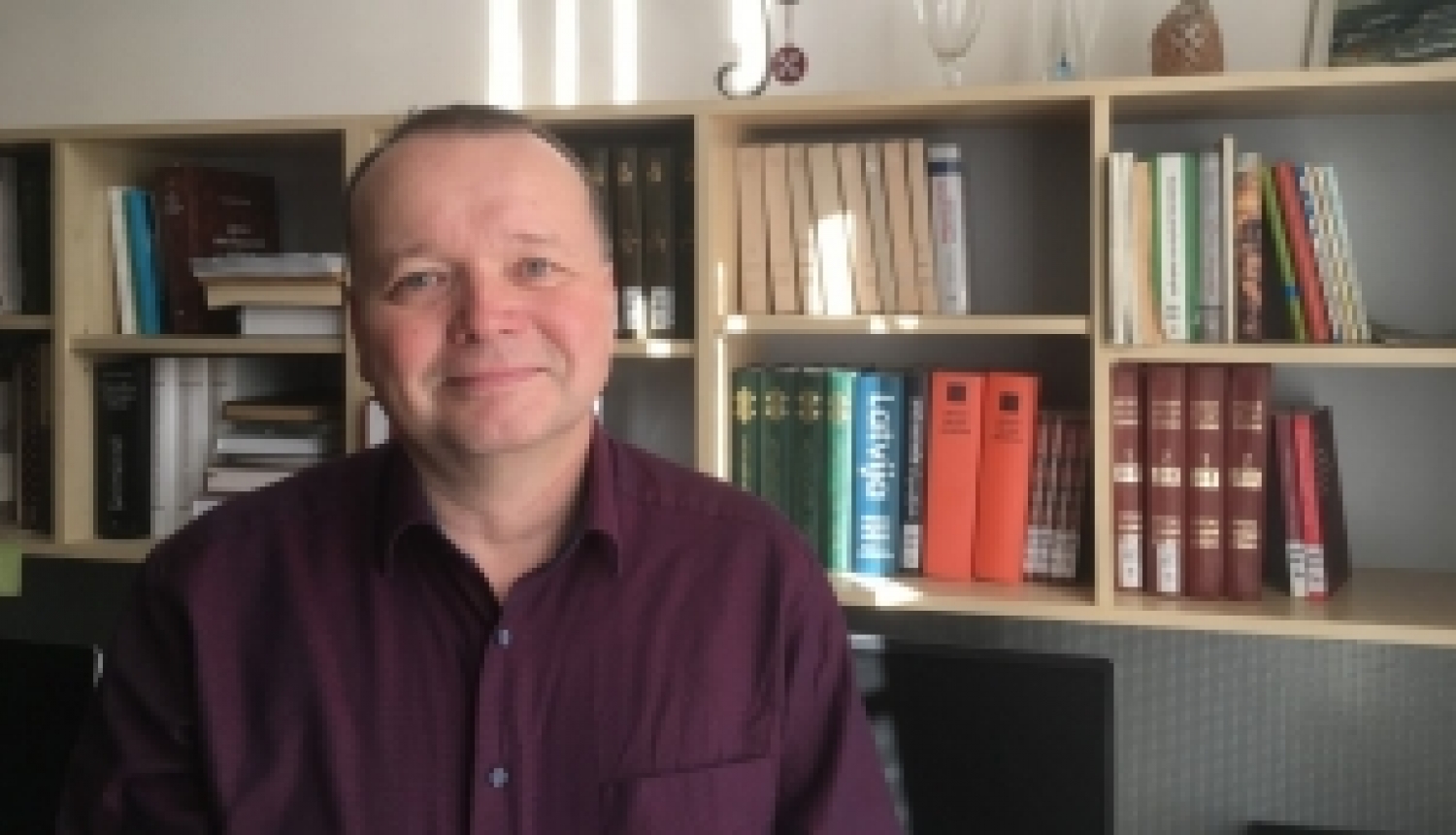Pavel Štoll, an assistant professor from the Czech Republic has used the Latvian state scholarship to come to continue his research at the Faculty of Humanities of the University of Latvia, because his principal job at the Faculty of Philosophy of the Charles University in Prague is related to teaching of Latvian literature, culture and language, and Pavel is the head of the Department of Baltic Studies.
Pavel Štoll: “My research focuses on Czech-Latvian cultural ties, in particular relating to the Moravian Church, which, as we know, originated in the Czech lands and started to function in Vidzeme in the 18th century. The Faculty of Humanities of the University of Latvia had a deep interest in the contribution of the Moravian Church to the Latvian culture, and they invited me several times to scientific conferences on this topic. I have written my monograph “Latvian Culture and Moravian Church” issued in Czech and Latvian thanks to long and successful cooperation with this faculty and the Latvian state scholarship. I am also cooperating with the Faculty of History and Philosophy of the University of Latvia, together with which the Faculty of Humanities has organised two scientific conferences and has issued two collective monographs. They are devoted to Czech-Latvian ties and include my articles as well. Moreover, I participated in the creation of the exhibition named “Five Centuries of Latvian-Czech Literary Ties” in the National Library of Latvia, as well as prepared its catalogue in the two languages. I also value my ties with the Latvian Academy of Sciences, which has elected me as its foreign member. My work at the Charles University would not be possible without support of the Latvian Language Agency, which is represented at our faculty by the lecturer of Latvian Dr. Kristīne Ante.
I started my research activities in Latvia in the 90s of the 20th century when preparing my diploma paper and later my doctoral thesis. In recent years, I have been working on my habilitation paper. This paper will be devoted to “pure in heart” personalities in Latvian and Czech literature. I would like to note that during all these years my working conditions in Latvia have been as good and pleasant as in the years, when I started my research in my homeland. Colleagues from the University of Latvia, the Latvian Academy of Sciences, the National Library of Latvia, as well as the Misiņš Library have always been forthcoming and helpful. It is particularly motivating that my work in Latvia has been appreciated by several awards, of which the Order of the Three Stars is the one I value the most.
When talking about differences between Latvian and Czech cultures, I would like to emphasise that these cultures are close, which has been fascinating me from the very beginning of my studies, and I devote most of my research to that aspect. The similarity of both cultures was of course most affected by similar historical conditions, and largely also the impact of German culture. In the 20th century, our countries were also brought closer to each other by the tragic experience of German and Soviet Union occupations, which were much more severe for Latvia than for the Czechoslovakia. There are also differences between Latvian and Czech cultures, one of the main of which is that the Latvian people have much deeper and older folklore and choral singing traditions than Czechs have.
The main purpose of my study and research trips were scientific conferences, where I was provided with an opportunity to consult and share my thoughts with Latvian colleagues who were interested in similar research topics. Conferences are an important source of inspiration in the life of every scientist, they allow to establish and maintain personal contacts with other researchers. For example, the last conference I visited was very valuable in this matter, because it was devoted to works of Edvarts Virza and this was my opportunity to listen to a report by prof. Ilze Lokmane on Latvian language of Virza. Her analysis later helped me to analyse the translation of Straumēni into Czech. The conference „Power of the powerless: Masaryk, Patočka, Havel“ which I organized with my colleagues Igors Šuvajevs and Nadežda Pazuhina was the largest project of cooperation between Latvian and Czech humanities in the history.
Based on my personal positive experience, I could sincerely recommend everyone to apply for the Latvian state scholarship enabling you to do research in Latvia. Not only my household and work conditions, but also my personal contacts here have been so great that I have been visiting Latvia for 30 years, several times per year. Latvia has become my second homeland.”










